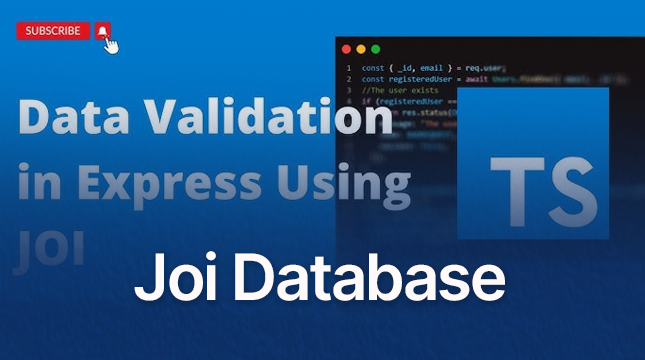This website uses cookies so that we can provide you with the best user experience possible. Cookie information is stored in your browser and performs functions such as recognising you when you return to our website and helping our team to understand which sections of the website you find most interesting and useful.
Joi Database: The Future of Real-Time Data Systems

The businesses require real-time insights, multi-model flexibility, and secure data management, all in one solution. Joi Database answers this call. Designed to scale and adapt across industries, Joi stands out for its innovative architecture, powerful analytics capabilities, and developer-friendly tools. Whether you’re managing massive data streams in healthcare or building AI-driven personalization engines in e-commerce, Joi Database is built to support complex, high-speed environments without compromising security or performance.
What Is Joi Database? A Game-Changing Innovation
Joi Database is a next-generation, multi-model, real-time database that supports JSON, relational, time-series, and graph data within a unified engine. Unlike traditional databases like MongoDB or Cassandra, Joi Database bridges transactional and analytical processing, making it ideal for both operational and analytical workloads (HTAP).
What sets it apart is its ability to handle structured and semi-structured data with built-in AI/ML pipeline support, data stream ingestion, and low-latency querying. Joi isn’t just a storage engine; it’s a real-time analytics powerhouse with native support for event-driven architectures.
Joi vs. Other Databases (Comparison Table)
| Feature | Joi Database | MongoDB | Cassandra | Redis |
|---|---|---|---|---|
| Real-time Analytics | Fully Supported | Partial | Not Supported | Partial |
| Multi-Model Support | Fully Supported | Partial | Not Supported | Not Supported |
| Built-in AI/ML Integration | Fully Supported | Not Supported | Not Supported | Not Supported |
| Graph + Time-Series Support | Fully Supported | Partial | Partial | Not Supported |
| Strong Consistency (ACID) | Fully Supported | Partial | Fully Supported | Not Supported |
| Native Streaming Data Support | Fully Supported | Not Supported | Not Supported | Not Supported |
Joi Database Architecture Overview
Joi’s architecture is modular and designed for modern cloud-native deployments:
- Storage Layer: Manages JSON, time-series, and graph data with high compression and indexing.
- Query Engine: Supports SQL-like and graph-based queries with ACID compliance.
- Stream Processing Layer: Real-time data pipeline ingest and transformation with zero latency.
- Security Core: End-to-end encryption, role-based access control (RBAC), and audit logging.
- Scalability Node Manager: Auto-sharding and horizontal scaling on Kubernetes or VM-based clusters.
This architecture allows organizations to ingest, store, process, and analyze data — all within milliseconds.
Core Features That Set Joi Apart
- Multi-Model Support – Store and query JSON, tabular, graph, and time-series data in one place.
- Built-in AI/ML Connectors – Integrate directly with tools like TensorFlow, PyTorch, or LangChain for real-time inference.
- Streaming Data Pipelines – Handle millions of events per second using native Kafka-like event processing.
- ACID + BASE Support – Choose transactional or eventual consistency based on workload.
- Smart Caching – Predictive caching for frequently accessed data.
- Zero Trust Security – Granular controls with JWT, RBAC, and TLS enforced encryption.
Sample Code: Real-Time Query Using Joi SDK
Here’s an example of querying a live stream of sensor data using Joi’s Node.js SDK:
const JoiClient = require('joi-db-sdk');
const client = new JoiClient({
host: 'https://api.joi.io',
token: process.env.JOI_API_KEY
});
async function fetchLiveData() {
try {
const result = await client.query({
collection: 'iot_stream',
filter: {
temperature: { $gt: 35 },
status: 'active'
},
limit: 50
});
console.log('Live Sensor Data:', result);
} catch (err) {
console.error('Query error:', err);
}
}
fetchLiveData();
This retrieves real-time sensor data where the temperature exceeds 35°C and the device status is active.
Top Use Cases for Joi Database
1. IoT & Telemetry Analytics
Joi excels at managing millions of real-time telemetry events from smart devices, vehicles, and machines. Its time-series and event-based architecture makes it perfect for predictive maintenance, anomaly detection, and edge computing applications.
2. Fraud Detection in Finance
Joi’s ability to process and analyze transaction streams in real-time helps banks detect fraud within milliseconds. Pattern recognition and behavior analytics are natively supported.
3. Healthcare Data Lakes
Secure, compliant storage and analysis of patient data, imaging results, and real-time monitoring data — all under HIPAA or GDPR.
4. E-commerce Personalization
Use Joi to create dynamic customer profiles and serve personalized product recommendations instantly using live browsing behavior.
Getting Started with Joi Database
Installation
You can install Joi via Docker or the CLI:
docker pull joi/joi-db:latest
docker run -p 8080:8080 joi/joi-db
Or with the CLI:
npm install -g joi-cli
joi init --project my-first-app
Schema Design Example
{
"collection": "orders",
"fields": [
{ "name": "order_id", "type": "string", "primaryKey": true },
{ "name": "status", "type": "string" },
{ "name": "items", "type": "array" },
{ "name": "customer_id", "type": "string" },
{ "name": "created_at", "type": "datetime" }
]
}
Also Read
- Integrate AWS Generative AI into Your Applications
- Data Analytics Consulting: Transform Your Business
- Mobile App Development in Healthcare
- Why Choose Node.js for Real-Time Applications
- Managed IT Services Guide
Final Thoughts
Joi Database is not just another entry in the NoSQL space; it’s a reimagining of what modern data infrastructure should look like. With its powerful hybrid capabilities, it empowers developers, analysts, and businesses to unify their transactional and analytical workloads in real time. Whether you’re scaling microservices, analyzing financial transactions, or running AI models on live data, Joi makes it easier, faster, and safer.
Want to stay ahead of the data curve? Joi is your answer.
Frequently Asked Questions (FAQs)
1. What is Joi Database used for?
It is designed for real-time data processing and analytics. It supports multi-model data, making it ideal for IoT, AI, and enterprise applications.
2. How is Joi Database different from MongoDB or Cassandra?
Unlike MongoDB or Cassandra, Joi Database offers native real-time analytics, AI integrations, and hybrid transactional/analytical processing in one platform.
3. Does Joi Database support structured and unstructured data?
Yes. Joi Database supports structured (relational), semi-structured (JSON), graph, and time-series data in a unified platform.
4. Can I integrate Joi Database with cloud platforms like AWS or GCP?
Absolutely. Joi Database supports cloud-native deployment on AWS, GCP, and Azure, and integrates well with Docker and Kubernetes.
5. Is Joi Database open-source or proprietary?
Joi Database offers a hybrid licensing model with an open-core architecture, enabling both open-source flexibility and enterprise-grade features.

Let's Start Your Project
Get free consultation for your digital product idea to turn it into reality!
Get Started






